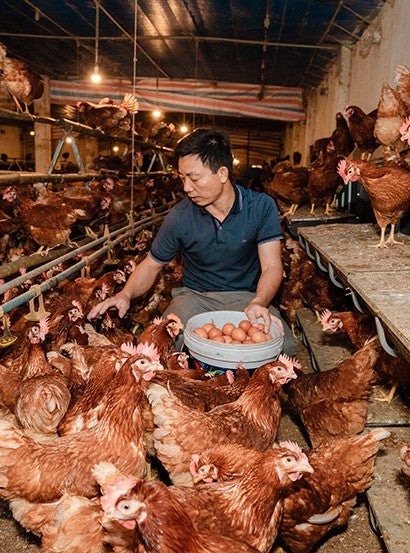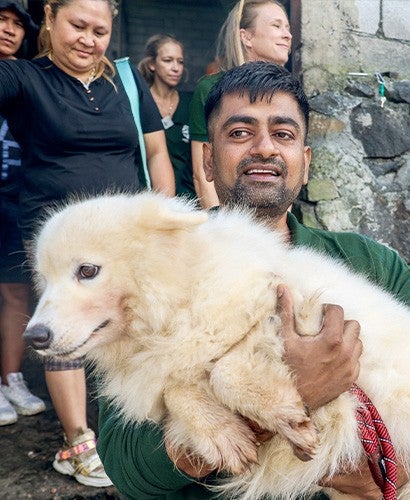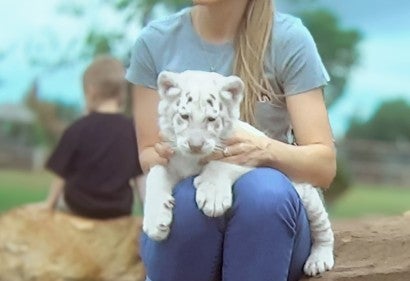Writing our annual year-end review is no easy task. We sift through mountains of data, read through reports and try to choose just a few victories that capture the incredible breadth of work we do here at the Humane Society family of organizations. This year, we’re trying something different: We asked staffers around the world to share the moments that they found most meaningful or impactful in 2023. We hope you enjoy their reflections!
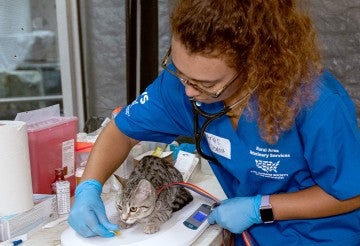
310 veterinary professionals and students volunteered 24,640 hours to care for 8,492 animals through our Rural Area Veterinary Services program
“After our last field teaching clinic for the season ended, one of our veterinary student volunteers stayed behind to offer me a hug and thanks for supporting her clinical training throughout the clinic. She shared her gratitude for the experience and how much she felt she had learned and accomplished in one intense week. I was immediately humbled by the reminder of the impact we have in this work—not only for animals and their families but for the hundreds of veterinary students and professionals who join our team in the field each year.”
—Anne Marie McPartlin, RAVS senior program coordinator
Five students received $10,000 scholarships from Humane Society Veterinary Medical Association
“The veterinary profession suffers from a severe lack of diversity. For example, only about 1-2% of veterinarians identify as Black, and Black veterinarians exit school with more debt than their white peers. In a profession with an already high debt-to-income ratio, this is a huge obstacle to recruiting more people of color. Lack of diversity within the profession also affects access to care. Many pet owners feel uncomfortable bringing their pet to someone who doesn’t look like them. This year, HSVMA’s Compassionate Care Scholarships gave special consideration to people of color and students who demonstrated a commitment to working with underserved or marginalized communities. We’re proud to support students on the journey to becoming future humane leaders.”
—Heather Schrader, HSVMA program manager of student outreach
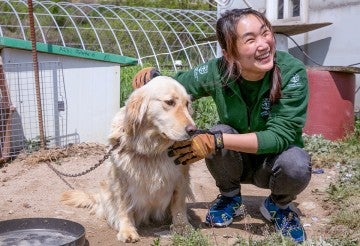
198 dogs were rescued from Korean meat farms this year alone
“Never before have we received this much political support in banning dog meat in South Korea. This would have been unimaginable just a few years ago, when no lawmakers were willing to support the ban publicly. It’s been such a rewarding process to watch how the political landscape has developed from no voice to full support.”
—Borami Seo, government affairs director, HSI/Korea
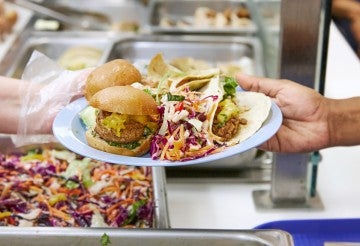
An additional 22.4 million meals will be plant-based in Brazil next year thanks to the HSI Farm Animal Welfare team’s work with universities, schools and hotels
“Working with my hometown of Belo Horizonte on a plant-based initiative to put healthy, sustainable meals free from animal products on menus at 556 schools was a personal highlight of the year. Through this initiative, we will serve almost 16 million plant-based meals to almost 400,000 students, sparing more than 300,000 animals every year. Knowing the impact we are having on animal lives inspires me every day, and I’m so glad to be a part of this change in my hometown.”
—Thayana Oliveira Soares, senior manager of food policy, Farm Animal Welfare, HSI in Brazil
Want more content like this?
This was written and produced by the team behind All Animals, our award-winning magazine. Each issue is packed with inspiring stories about how we are changing the world for animals together.
Learn MoreSubscribe

